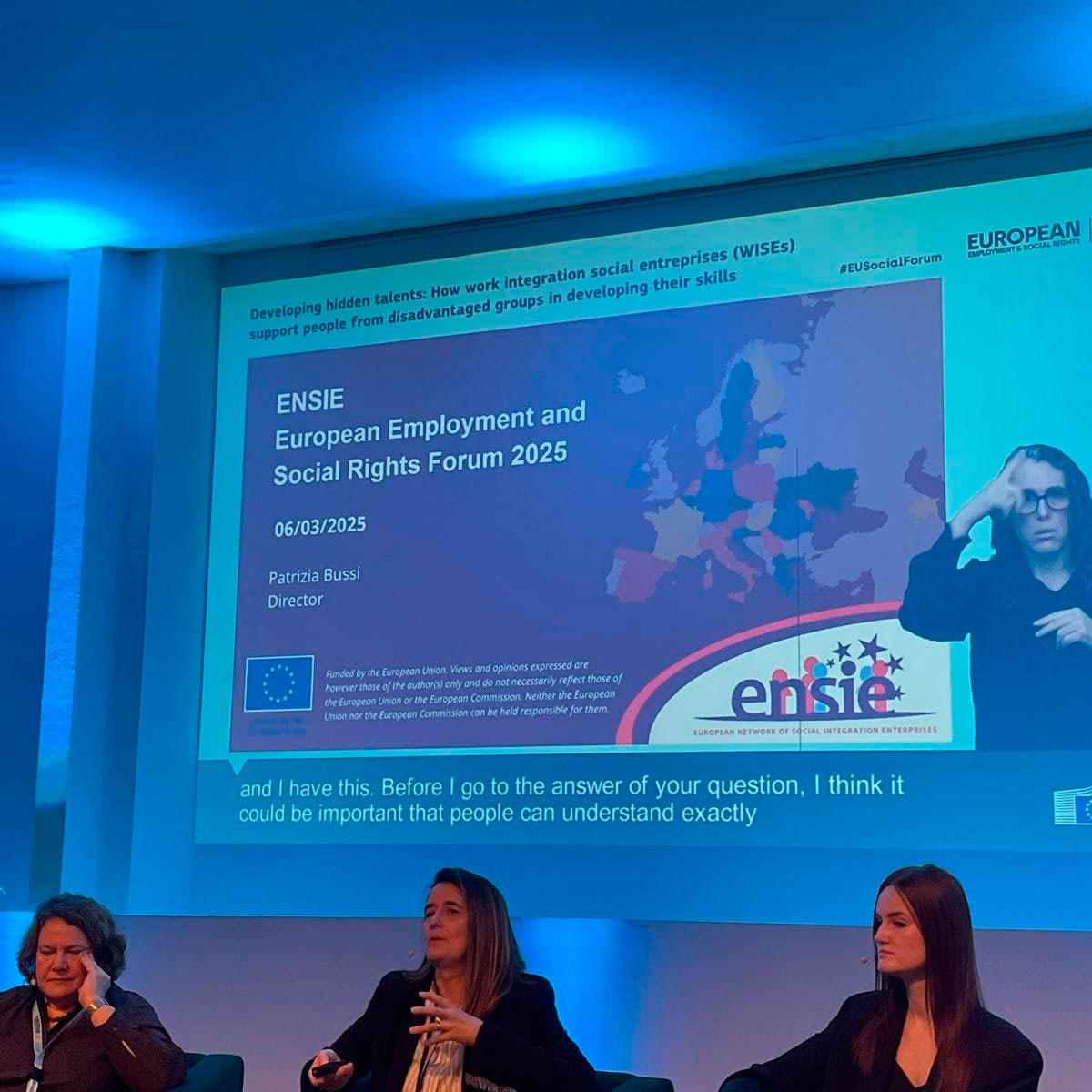ENSIE, the European Network representing Work Integration Social Enterprises, took part in the European Employment and Social Rights Forum, held on 5-6 March 2025 at the EGG, Brussels. The Forum brought together experts from different sectors to discuss one of Europe’s key challenges: ensuring people have the skills needed for today’s jobs while strengthening Europe’s economy. Over two days, the event featured keynote speeches and lively discussions on skills, employment, and competitiveness, setting the stage for future action.
This year’s Forum marked a historic moment for Work Integration Social Enterprises (WISEs) as they had a dedicated panel for the first time. Being one of the very few civil society organisations present at the Forum, ENSIE made sure the voice of WISEs was heard, highlighting their essential role in creating job opportunities for people from disadvantaged backgrounds.
ENSIE intervened in the session “Developing Hidden Talents: How Work Integration Social Enterprises (WISEs) Support People from Disadvantaged Groups in Developing Their Skills”. The panel focused on how WISEs help people gain new skills, reskilling and find quality jobs, strengthening Europe’s workforce and prosperity.
ENSIE Director Patrizia Bussi was joined by representatives of the European Commission and social enterprises, including Ruth Paserman (DG Employment, Social Affairs and Inclusion, European Commission), Krista Krieviņa (Wings of Hope), Lieven Bossuyt (Lichtwerk), and Gaetan Herinckx (Phitrust).
The discussion highlighted how WISEs contribute to key European policies like the European Social Economy Action Plan and the European Pillar of Social Rights. The panellists stressed importance of the recognition of the WISEs role in providing employment services, and the need for stronger policies and financial support to help WISEs expand their impact.
ENSIE director Patrizia Bussi called for better State aid GBER rules for the recruitment of disadvantaged workers and improved public procurement policies, with some important proposals concerning the reserved contracts, and some social impact indicators to assess the preservation of jobs for individuals from disadvantaged groups. Moreover, Bussi recalled the importance of strengthening social investments through a stand-alone social fund in the next Multiannual Financial Framework, referring to the recent joint statement “Time for ambition: The EU needs a strong Social Fund to live up to its commitments”, co-signed by 66 European organisations and over 200 national organisations across 31 countries.







